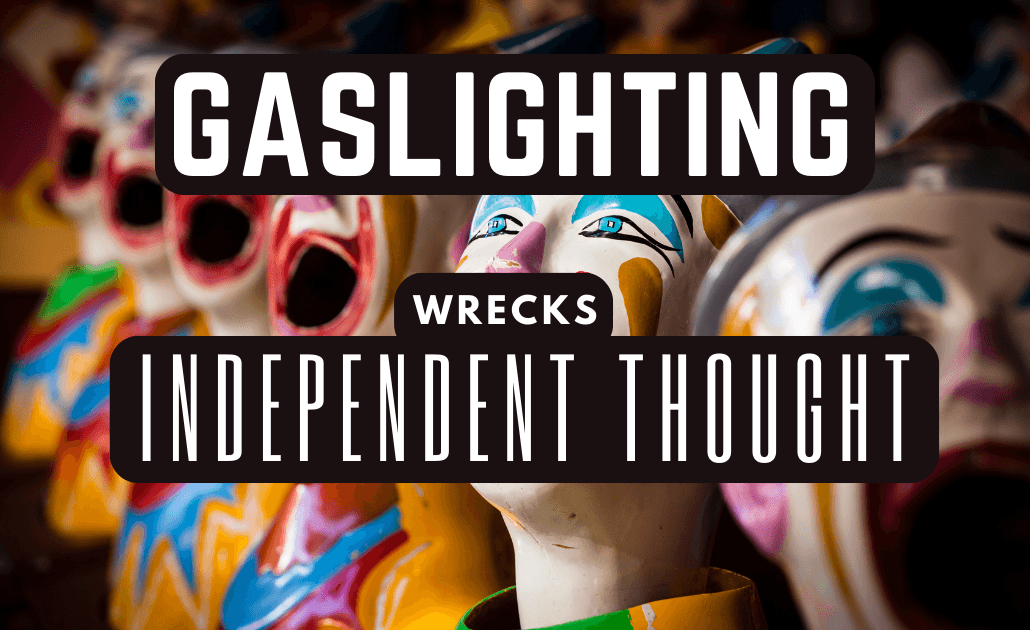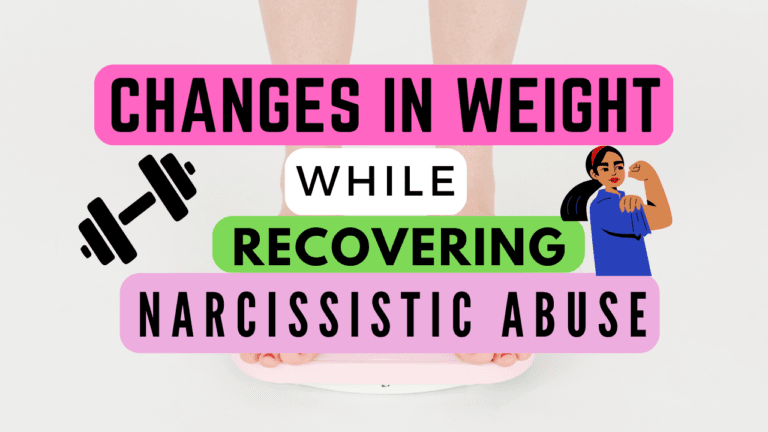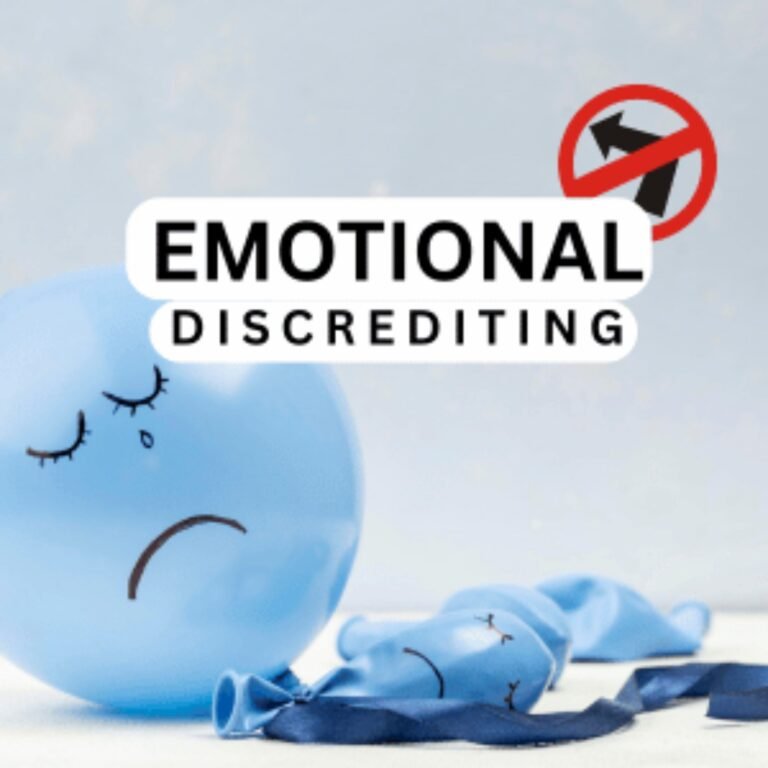Gaslighting is Subtle and Its Objective is to Stop You From Independent Thought: 6 Skills to Know
Gaslighting is at an all time high, it’s everywhere, but subtle. It can easily go undetected, unless you are on the lookout for it.
People gaslight each other, some with intent, and others do it because society has trained them to respond or act in a certain way to a certain socially acceptable situation.
If you call out a gaslighter, better watch out, because it will tell you all you need to know about that person.
Related: What Will You Tolerate?
Gaslighting is a form of psychological manipulation in which a person or a group seeks to sow seeds of doubt in a targeted individual or group, making them question their own memory, perception, or sanity.
The term originates from a play and subsequent movie called “Gas Light,” where a husband manipulates his wife into believing she’s losing her mind by dimming the gas lights and then denying that they had changed.
Gaslighting is often subtle and insidious, with the objective of undermining the victim’s self-confidence, self-trust, and critical thinking skills.
Table of Contents
Listen to the Podcast Episode
They Want Something You Have
Someone who gaslights:
- wants something you have
- wants something you do
- wants you do something for them
- wants you to think a certain way about them so they can do certain things
There are no new tricks under the sun.
If you respond to an inquiry using independent thought because you do not buy into what they are telling you right away, and say you need to think about it, it may cause the one who gaslights to respond to you in a certain way. For example:
- they may get mad at you, or irritated
- they may level up their manipulation skills
- they may try to shut down your critical thinking and tell you what they want you to believe
- they may insist that you stop thinking and just blindly believe them
- they may get agitated with you for even asking the question
- they dislike that you give off the impression that you to not believe them entirely
Why?
WHy do they Gaslight?
Because when you think independently, and listen to yourself and your own intuition, you are stopping their game.
You are stopping them from getting what they want.
This happens across all socioeconomic levels.
One party wants something the other party has, and they will not only gaslight, which is verbal communication, but they will use other psychological tactics to break this person down, if they cannot succeed with their attempt to control through gaslighting.
Let's WIden This
They desperately want you to stop thinking.
Why do you think they keep us so busy all the time?
Working a 9-5, then taking car of the home, then social events, kids, there is no time for reflection in today’s society.
When you cannot think, and have independent thought you are much more susceptible to large scale messages, and over time, the messages may convince you to do something you would not have done.
You have to remain sharp to the attempt of gaslighting.
Just because a message is all over the place and has the perception it’s true, doesn’t mean it is. The author of the message, probably has something to gain from it.
Subtle Gaslighting Phrases
Some subtle gaslighting phrases:
- Why do you have to think about it more, I’m telling you how it is
- No, that’s not correct.
- I’m telling you the truth.
High-Stakes Gaslighting
There will be certain events that there will be more gaslighting than others:
- Dating
- Job Interviews
- Marriage Proposals
The Actors are Out in Full Force Running Amuck
What’s worse is society accepts gaslighting as a whole, and it’s reinforced by unintentionally by people everyday – and intentionally. People just repeat what they hear – without fully examining the messages.
Gaslighting Tactics
Gaslighting achieves its objectives through various tactics that can be difficult to detect and resist. Here are some ways gaslighting is subtle and aims to dismantle critical thinking:
Denial and Contradiction: Gaslighters may flatly deny events or conversations that the victim distinctly remembers. They might also contradict themselves, causing the victim to question their own perception of reality. Over time, this constant contradiction erodes the victim’s confidence in their memory and judgment.
Selective Withholding of Information: Gaslighters might withhold information or pretend to forget important details, causing the victim to doubt their understanding of a situation. This tactic makes the victim reliant on the gaslighter’s version of events.
Shifting Blame: Gaslighters often shift the blame onto the victim, making them feel responsible for the gaslighter’s behavior. This manipulation causes the victim to question their own actions and motives, leading to self-doubt.
Projecting: Gaslighters may project their own negative traits onto the victim. By making the victim feel as though they possess these negative traits, the gaslighter can manipulate them into believing they are the one who needs to change.
Minimization and Trivialization: Gaslighters downplay the victim’s feelings or concerns, making them feel as though their emotions are overreactive or unwarranted. This undermines the victim’s ability to trust their emotions and instincts.
Isolation: Gaslighters often isolate the victim from friends, family, or other sources of support. This isolation makes the victim more dependent on the gaslighter’s perspective and further erodes their ability to think critically.
Gradual Escalation: Gaslighting often begins with subtle tactics and gradually escalates over time. This gradual escalation makes it harder for the victim to recognize the manipulation as it’s happening.
Creating Confusion: Gaslighters may introduce inconsistencies or contradictory information, causing confusion and making it challenging for the victim to form a coherent understanding of reality.
Gaslighting can have serious and lasting effects on a person’s mental health, self-esteem, and ability to think critically. Victims of gaslighting may become overly dependent on external validation, lose confidence in their decision-making abilities, and struggle to trust their own perceptions.
Recognizing gaslighting and its subtle tactics is an essential step in protecting oneself from its harmful effects. Developing strong critical thinking skills, self-awareness, is the start to regain your strength and not be manipulated by takers.
Tell us about a time when you were recently gaslight? Maybe you didn’t realize it at the time, but did afterward. What were some things you learned in the process? Drop a comment and share!








